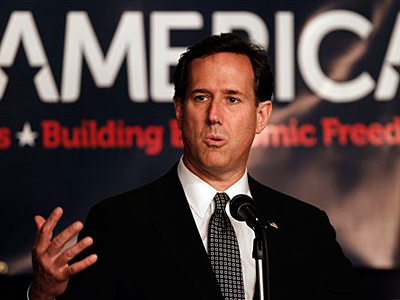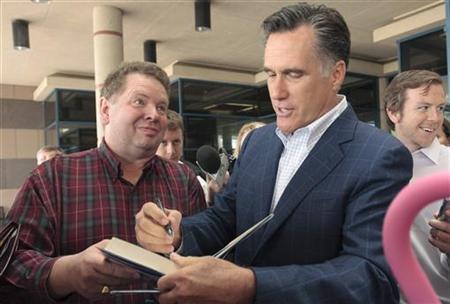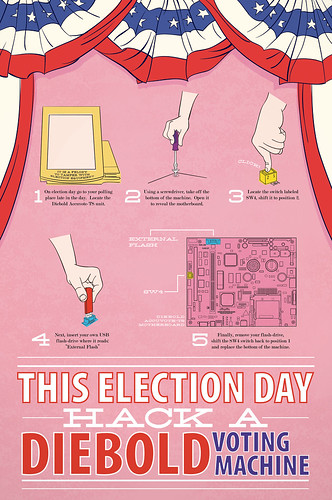South Carolina primary day live blog

Time
10:25 p.m.
As previously noted (below), the gender gap in SC voter turnout was men 53 percent; women 47 percent.
The population of South Carolina is 4,625,364 as of 2010, up 15.3% from 2000 to 2010.
Female 51.4%
Registered voters 2,722,344
So somewhat more than half the state is registered to vote. Not registered by party.
Daily Caller emphasizes that Gingrich won the women’s vote in SC, at least with a plurality of 36 percent. Romney came in second with 30 percent of the women’s vote.
However, most women in South Carolina did not vote.
Dems for Gingrich?
The stridently rightwing Examiner offers a further thesis: Gingrich was elected by Democrats.
“Consider this–unlike most other primaries, South Carolina voters don’t have to register their party affiliation. With no election this time around on the Democratic Party side, it’s a guaranteed bet that a number of South Carolina Democrats voted in today’s primary. As one could assume, some voted because it was an exciting Republican race. Some voted because they had nothing better to do today. And some Democrats voted to help sway the GOP primary toward President Obama’s hopeful opponent–Newt Gingrich.
How much of an effect did the Democrats have on the Republican Party’s South Carolina primary today? It would be almost impossible to quantify. But rest assured, just as former Speaker Gingrich can thank women and evangelicals for his victory today, he can thank Democrats as well.”
There are already copious signs of Republican and conservative discomfort with Gingrich’s win in South Carolina. This is but one of them. David Gergen and others are openly–already–discussing the possibility of a brokered GOP convention, or of a split convention, or of finding someone else to jump into the race if Gingrich and Romney continue in their present courses. The discussion is undoubtedly premature, but it accurately reflects the party’s widespread aversion to Gingrich, who earned it.
So far, the Examiner is the only publication to blame the SC primary outcome on Democrats. Seems a bit far-fetched. I would think that if Democrats or others really wanted to participate constructively in the Republican primary in South Carolina, they would have voted for Herman Cain/Colbert.
But time will tell.
7:45 p.m.
CNN has now joined all the others in projecting SC for Gingrich, who with a whole 4 percent of precincts in has taken the lead over Romney. Only question remaining for South Carolina, all hands concede, is how big the lead will be. If it’s double digits for Newtie, Florida–what will the campaign be like?
They haven’t said what the effect will be should Gingrich carry South Carolina GOPers by only single digits. The first three races have resulted in a win apiece for three candidates. Somewhat like 1964? —
Speaking of previous decades, a wonderful book is still floating around on the 1972 election, titled The Boys on the Bus. Author, Timothy Crouse.
Here is Crouse with a still-timely passage on George Romney, Mitt Romney’s father. The effect on the campaigns stems from the success of Teddy White’s Making of the President books:
“As recently as 1960, or even 1964, a coalition of party heavies, state conventions, and big-city bosses had chosen the candidate in relatively unviolated privacy, and then presented him to the press to report on.
Now the press screened the candidates, usurping the partys’ old function. By reporting a man’s political strengths, they made him a front runner; by mentioning his weaknesses and liabilities, they cut him down. Teddy White, even in his wildest flights of megalomania, had never allowed imself this kind of power. The press was no longer simply guessing who might run and who might win; the press was in some way determining these things.”
Side note: Much as the old party bosses over-relied on their own ‘power’ and ultimately ruined themselves by overreaching, the insiders in the national political press went on to do the same thing. Hence the millions of members of the public who turned first to cable television and then to the Internet. People got tired of not being able to find out anything by reading the paper. Thus the press got its comeuppance from the Internet.
Back, meanwhile, to George Romney:
“The classic example was George Romney. Romney had opened his campaign almost a year before the first primary, expecting a press contingent of two or three reporters. Instead, twenty or thirty showed up for Romney’s first exploratory trips around the country, and they all reported Romney’s embarrassing inability to give coherent answers to their questions about Vietnam, thus dooming his candidacy. But Romney was the perfect, textbook example. The process was usually more subtle, and more difficult to describe.”
Not that Romney senior was the only one, by a long shot. But the elder Romney’s experience provides a rationale for Mitt Romney’s perceived distance from the press.
Newt Gingrich, in contrast, cultivates the press. Politico reported yesterday that Gingrich pretty much butters reporters like toast, in fact.
It will be mildly interesting to see what face Gingrich turns to Florida. He got South Carolina by being ugly, if the numbers hold up. But Florida has different demographics and not a lot of fondness for being lumped in with South Carolina.
7:24 p.m.
Most of television has called it for Gingrich. No votes reported, no precincts, in unofficial returns on the South Carolina State Election Commission big board yet.
If the elite media jumped the gun for Gingrich, that might be ironic. Or it might suggest that bullying these guys works.
7:19 p.m.
Only CNN, of all the majors, is not calling South Carolina for Gingrich. Out of an abundance of caution, since only two precincts have turned in votes, they’re not saying. Makes sense.
Votes in so far show Gingrich and Romney neck-and-neck (Romney ahead by one, a minute ago). Rather a different tenor from the other media outlets, from which one would think that Newt had almost all the votes, with all the other candidates scrapping for a fourth-place tie.
7:03 p.m.
Sure enough, seconds past 7:00 p.m. when South Carolina polls closed, Fox News calls it for Newt Gingrich. NBC, ABC et al follow suit.
This is linked by the suits on television to exit polls showing that 45 percent of GOPers voting in South Carolina rated ability to beat Obama their top concern.
The concern is understandable from their (heated) perspective, but that led them to vote for Gingrich? Note that they don’t call it ‘electability,’ which would be a stretch as applied to Gingrich. They presumably just feel that Gingrich would say the ugliest and most shameful things on the stump and perhaps on the debate stage.
Women, by the way, did not vote in the same numbers as men in SC. The men had a 53-to-47 percent margin in turnout.
6:41 p.m.
Back to ‘weather’ and ‘turnout’: What is mind-blowing is to hear this kind of discussion about a Republican election, any Republican election, and about a Republican candidate.
Back when, weather-and-turnout was applied to Democrats, and generally with some undertone having to do with either race, poverty, or blue-collar workers, or all three. The line of thought, you see, was that Certain Paople were more easily influenced than others. Stalwart Republican voters would turn out, out of a sense of duty, in this line of thought, rain or shine. The little blue-haired ladies, the white-belt-white-shoes contingent, retired military, etc, they would always vote, with or without enthusiasm, with or without special issues, with or without hot-button topics in the headlines. Those people with little pins in their lapels did not need any special stimulus to go pull the lever for whatever candidate the party establishment threw at them. Plus, they tended to drive better cars–this is the same line of thought–so they were less affected by bad weather anyway. Maybe an extra car wash during the week, but nothing to affect the election.
Turnout and weather, au contraire, were held to be closely entertwined on the Democratic side. Some paople just can’t handle the slightest obstacle. Even the slightest difficulty keeps them from doing what they should.
We’re hearing this last thought, if you call it that, in the Gingrich campaign. Gingrich is doing it more explicitly and with more sharp-edged ugliness than most people have thought tolerable over the last thirty years.
But to hear on the airwaves that Mitt Romney desperately needs good weather?
Mind-boggling.
Ironically, it has been less current as applied to the Dems, ever since Jesse Jackson ran and won the Virginia primary in 1988.
6:18 p.m.
At six-ish the major cable channels began official coverage of the South Carolina primary, as opposed to just talking about it almost nonstop.
The biggest surprise from MSNBC so far: Keith Olbermann‘s name briefly flashed across the screen, in the crawl. Olbermann was named as one of the commentators providing coverage of the primary.
Not so. Just a stutter. Nothing to see here.
Olbermann will be covering the primary, but from newer venue as of last year, at Current TV.
First exit polls indicate that surprisingly 64 percent of GOPers who turned out describe themselves as born-again/evangelicals, 66 percent support the Tea Party, and 69 percent are conservative.
Question is how this preponderance plays among Santorum–who says he’s felt a surge since yesterday–Gingrich and Paul, presumably.
5:05 p.m.
Not a dissentient voice on MSNBC as to Gingrich’s win in South Carolina. Craig Melvin just reported that every politico in SC says it’s not a question of whether Gringrich will win, just by what percentage. Drumbeat for Newt turning into an avalanche, from all signs. The weather is also touted as a sign of things to come, rain depressing turnout–and Mitt Romney, of all candidates in the world, dependent on turnout. So it is said.
This is a twist in itself. Turnout reported to be high in upstate South Carolina, voters coming out for Gingrich (and Santorum? and Paul?) Turnout light to steady on the coast, and in the midlands, where the votescasters feel that Romney would get more support.
Entertaining piece by James Carville as CNN commentator, taking some easy shots but undeniably good ones. It might be premature to call the GOP field a “disaster” (aside from their core policy, breaking the middle class and destroying everyone but the super-rich). Abysmally unqualified candidates have managed to emerge victorious before. But politically speaking things are not looking too good for them at the moment, except for the humor. Stephen Colbert as Herman Cain is doing a great job, head-and-shoulders above the other candidates. No other candidate even comes close, although at least Ron Paul has remained consistent on his views and stated positions. He can speak understandably, too.
12:13 p.m.
In all the on-air chatter about Romney’s gaffe and Romney as out-of-touch, no one has mentioned how much like legalized bribery, or subornation, speaker fees are to begin with. No one brings up the Koch-brother-funded functions where right-wingers like Charles Krauthammer and George Will prostitute the art of letters in service to war and exploitation. David Brock of Media Matters noted in his after-the-fall book that he was no longer going to receive six-figure speaking gigs and seven-figure book advances. Has anyone pointed out that those six-figure and seven-figure payments are going to propaganda instead of to legitimate publishing and writing, what we used to call arts and letters? Has anyone talked about America’s intellectual infrastructure?
Not this week.
All the pundits declare this Romney’s worst week ever. These are the pundits who determined three days ago that Romney was the inevitable nominee. The Rominee. True enough, Romney has suffered a downturn–the Santorum win in Iowa, Newt Gingrich surging in the polls, more verbal slips. Thus we have a new overworked word to be sick of, “collapsing.” (Re Romney’s campaign.) First it was “coalesce.” Then “forgiveness.”
I’m all for forgiveness. The one episode of Modern Family I’ve seen did a nice job with it, too. But there is some woolliness about how this concept is being applied in the current commentary. It is pure, and clean, and noble, to forgive someone who has wronged you. It is less noble to forgive someone who has wronged someone else.
Speaking of gagging, some commentators are also taking a new oddly deferential tone about Newt Gingrich. Partly this reflects the newest opinion polls, partly the standing ovation when Gingrich used John King’s question about the Marianne Gingrich interview to vilify “elite media” and their (fancied) protection of Barack Obama. The man is tripping—or rather, lying—but that’s not the main point right here.
The big thorn here is that Gingrich comes across as rather loathesome. He may have boosted himself in South Carolina by out-uglying everyone else, but there is a reckoning ahead. For King not to have asked about the “open marriage” interview at all would have been ridiculous.
It would have been better not to lead off by asking about it, but ignoring it entirely would have looked odd. There is no reason to bend over backward for Newt Gingrich. A couple of things not mentioned on air: When the candidates entered the room for that South Carolina debate, as each name was announced, Gingrich got boos as well as cheers. And when Gingrich got his standing ovation for attacking King, plenty of women remained seated.
10:39 a.m.
Another ongoing theme of discussion, on air at least–how or why Mitt Romney has so much trouble ‘connecting’ with the average person. Maybe eventually they’ll get around to discussing the rich-get-rich economic policy destined to turn the U.S.A. into ColombiaArabia if not redressed.
Not any time soon, though.
That said, there are moments when I feel sorry for Mitt Romney. It happens when Romney’s calling his $374K speaking fees “not very much” comes up in the news media.

Romney announces
It is surprising to feel this way about a candidate whose policies as president would in all likelihood be worse than GWBush’s, but even an offshoring robber baron can be misunderstood.
Take that off-the-cuff “not very much” comment:
- Romney was brought up to act like a gentleman, and good manners forbid a gentleman to brag about how much he is paid for speeches. He does not put himself forward unduly about anything, in fact—making a parade of anything is antithetical to his background. (Mine, too, for that matter.) Needless to say, this ethos makes running for office a hard row to hoe, although Barack Obama has the same one and handles it brilliantly. But then the president has the additional ethos of cool, an attribute Romney does not have and to do him justice—gentlemanly self-deprecating again—does not claim.
- So when Romney was asked about his income sources aside from capital gains, he ticked them off–the book sales, which he donated to charity; the speaking fees, “but not very much.” He would not bill himself as one of your top speakers getting six figures for a single appearance. Primarily concerned not to brag, Romney played down his status on the speaker circuit. He does the same kind of thing when he says things like “I worried about whether I would get a pink slip,” and when he laughs (self-deprecatingly), “I’m unemployed.” Not acting grandiose is a big part of his moral lexicon for personal behavior.
- Unfortunately, his acute attention to one part of the radar screen (don’t brag) left his radar completely down on the fact that $374K is actually a lot of money.
That fact has been duly noted, the point made. Income inequality has finally lighted up on the big board.
N.b. Re the question raised earlier about how well Gingrich is doing among women–today’s Washington Post quotes from 15 women interviewed in So. Carolina, most of whom support Gingrich in the exchange with John King at Thursday night’s debate. Several of them seem from the quoted comments to be more siding against Marianne Gingrich, but it works the same way.
9:57 a.m.
It’s Saturday, the non-Tuesday GOP primary in South Carolina–forget religious observance–and the talking heads are going at it. This is not lawn-mowing weather anyhow.
Big question of course is whether Newt Gingrich managed to out-ugly everybody else enough to pull off a South Carolina win that would be considered an upset. The most recent polls put Gingrich ahead of the field including Romney.

- Gingrich
“Callista doesn’t care what I do.”
How people judge the content of the Marianne Gingrich interview is up to them. I believe the woman, but many people reportedly believe Gingrich’s denial. Either way, presenting this issue as public-versus-private muddies it.
The issue as applied to Newt Gingrich is not divorce or that Gingrich is thrice-married. The issue is how Gingrich has treated women—asking for a romantic triangle, etc–with some perceivable parallel to how he treats the suffering and unfortunate, the poor, and minorities; his penchant for bullying and for lying; his ethics violations while in office and then denying same; etc. Whether he has a track record of treating people decently is a reasonable question in the circumstances. To present this question as unwarranted intrusion into a public figure’s private life, like someone sneaking photographs of the Duchess of Cambridge, is mistaken at best. Too bad they keep using the vague generality “character” instead of asking, Does the candidate treat people with decency and respect?

The Gingriches, in earlier years
On that question, Barack Obama shows well. He has a track record of having treated the people in his life decently. Maybe that’s why they don’t ask the question on television, during an election year. It would weigh in the president’s favor too much. He hasn’t laid off a bunch of people, either.
Back to Gringrich, what makes the current opinion polls really remarkable is that quoted statement that Callista didn’t care what Gingrich did—i.e. having an ongoing three-way relationship while remaining married to Marianne, for six years. Gingrich is out ahead after that? Maybe: Most times when I have thought one thing and the polls showed another, the polls have been vindicated. But I’ll believe it when I see it.
Forget the overworked and tired terms “Christian right” and “values voters.” Assuming that fundamentalist right-wingers are the only people who care about the conduct in question is like assuming that African-Americans are the only people who care about Gingrich’s misstatements on food stamps. False, but television largely has not caught up with the trends.
Am I the only voter who remembers that right-wing Southern women often disparaged Hillary Clinton for staying with Bill Clinton? Am I the only pop-culture aficionado who remembers Gone with the Wind, that bible of fun-loving white South Carolinians? Remember the laugh the Yankee women got, at the expense of Southern womanhood, when Ashley Wilkes and the guys supposedly got caught drunk in a brothel and their women put up with it?


























